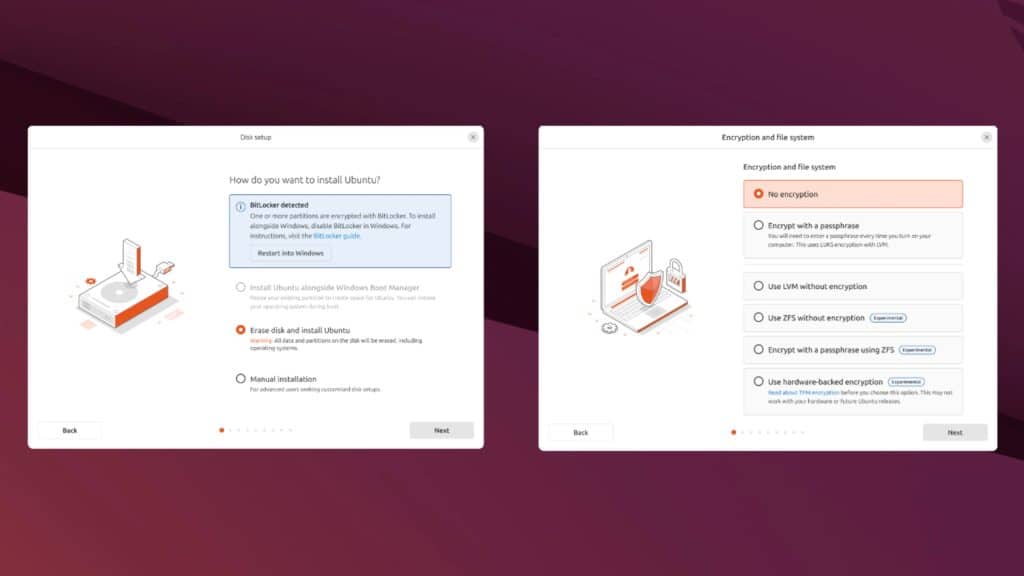Canonical has officially released Ubuntu 25.04 “Plucky Puffin”, its latest interim version packed with significant improvements for developers, system administrators, and infrastructure professionals. As a preview of what’s to come in future LTS releases, Plucky Puffin introduces critical enhancements in performance, confidential computing, container and VM management, developer tooling, and expanded hardware support.
This article breaks down the most relevant technical features for IT professionals evaluating Ubuntu 25.04 for development, testing, or deployment environments.
Linux Kernel 6.14 with sched_ext and NTSYNC
Ubuntu 25.04 ships with the latest Linux 6.14 kernel, which includes:
- sched_ext: A new extensible scheduler that enables user-space scheduling via eBPF programs. This allows for hot-swappable scheduling policies written in any language or tooling, offering flexibility for experimental, real-time, or high-performance computing use cases.
- NTSYNC driver: Implements Windows NT sync primitives to improve compatibility and performance for Windows applications running on Wine and Proton (used by Steam Play).
- Tools like
bpftoolandperfare now decoupled from the kernel package, simplifying container-based development environments and version management.
GNOME 48 + Triple Buffering + Native HDR Support
Canonical continues to deliver the latest upstream GNOME. Ubuntu 25.04 includes GNOME 48, featuring:
- Triple buffering support for smoother rendering on lower-powered GPUs and better performance across desktops.
- HDR out-of-the-box, supporting modern display technologies used in creative workflows.
- Wellbeing Panel: New UI tools to help track screen time and encourage healthy digital habits.
- Preserve Battery Health mode for extending laptop battery lifespan.
Additionally, the new Papers PDF reader replaces Evince, providing a faster, modern, and more intuitive experience.
Dracut: Experimental Replacement for initramfs-tools
Ubuntu 25.04 offers Dracut as an optional replacement for initramfs-tools. It is more modular, faster, and creates slimmer initramfs images. While still experimental, Dracut is expected to become the default in Ubuntu 25.10.
Enhanced Developer Tooling & Devpacks
This release places a strong emphasis on developer experience with:
- Updated toolchains for Python, Go, Rust, .NET, LLVM, OpenJDK, and GCC.
- Early access to GCC 15, OpenJDK 24ea, and OpenJDK 25ea.
- Snapcraft plugin updates for .NET improve parity with MSBuild and content snap creation.
Canonical introduces “Devpacks” – curated Snap bundles containing complete development environments. The first available devpack, devpack-for-spring, includes Spring Framework 6.1 & 6.2 and Spring Boot 3.3 & 3.4, providing modern tooling for Java application developers.
Incus (LXC & VM): Lightweight Container & VM Management
Ubuntu 25.04 introduces experimental support for Incus, a community-maintained fork of LXD:
- LXC containers function similarly to BSD Jails, offering lightweight isolation.
- QEMU/KVM VMs with Secure Boot and TPM support enable compatibility with modern OSes, including Windows 11.
- While labeled as experimental, Incus promises a new era of unified container and VM orchestration.
Confidential Computing and Security Enhancements
Ubuntu 25.04 continues Canonical’s push for confidential computing:
- AMD SEV-SNP host support is now available, allowing confidential virtual machines on-premises using Ubuntu both as host and guest OS.
- Enhanced security logging and auditing aligned with STIG (Security Technical Implementation Guides).
- Authd (Canonical’s authentication daemon) now supports Google IAM and Microsoft Entra ID.
- ADSys has improved compatibility with Polkit and certificate enrollment in Active Directory environments.
Network Improvements
- Netplan + systemd-networkd now wait for DNS resolution, providing a more reliable definition of “online” state.
- NetworkManager adds support for WPA-PSK-SHA256 and enhanced routing policy backend configuration.
- NTS-enabled NTP servers are now used by default for secure time synchronization.
Hardware Enablement: Intel, AMD, ARM64
Ubuntu 25.04 supports a wide range of modern hardware:
- Intel Core Ultra 200V and Arc B580/B570 GPUs now support:
- Hardware ray tracing acceleration (2–4x speedup, 20–30% faster rendering in Blender v4.2+).
- Hardware-accelerated video encoding for AVC, HEVC, AV1, JPEG.
- Intel Compute Runtime with CCS and Xe debugging for AI workloads.
- New ARM64 Desktop ISO simplifies installation on ARM64 laptops and VMs.
- Snapdragon platforms are fully supported, opening the door for AI development on mobile-class chips.
Recommendations and Roadmap
Ubuntu 25.04 is ideal for early adopters, developers, testers, and system integrators evaluating future Ubuntu LTS features. For production environments, Canonical continues to recommend Ubuntu 24.10.2.1 or 22.04 LTS.
This release also marks the continued convergence of Ubuntu CORE and SCALE technologies, a trend that will solidify further in upcoming releases.
Useful links:
- Download Ubuntu 25.04: https://ubuntu.com/download
- Release Notes: https://discourse.ubuntu.com/t/ubuntu-25-04-plucky-puffin-release-notes/43882
- Canonical Blog: https://canonical.com/blog
Conclusion
Ubuntu 25.04 is not just a point release—it’s a forward-looking platform for building, testing, and securing the future of Linux computing. With its robust support for confidential computing, experimental container/VM management, and strong developer tooling, it stands as a vital release for those shaping the next generation of cloud-native and AI-powered infrastructure.

